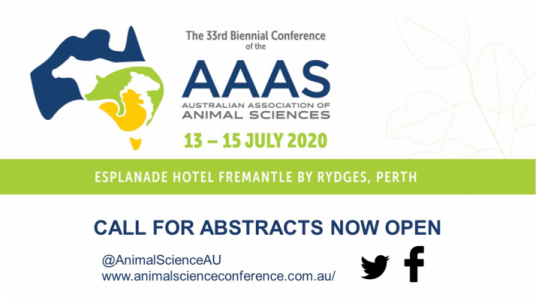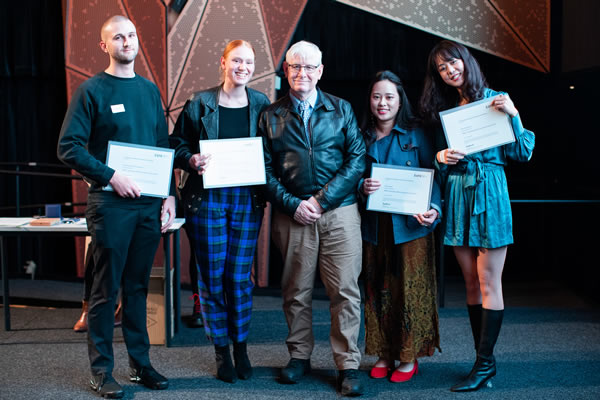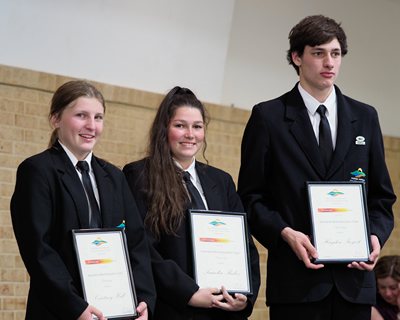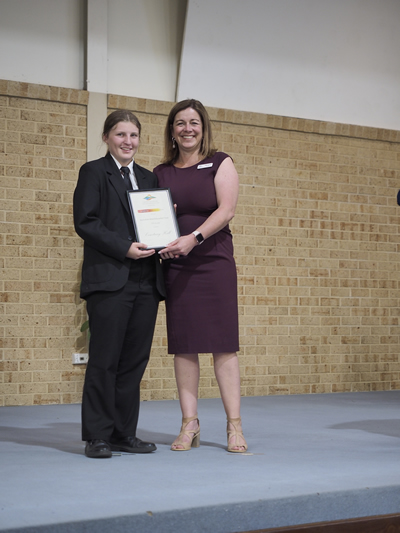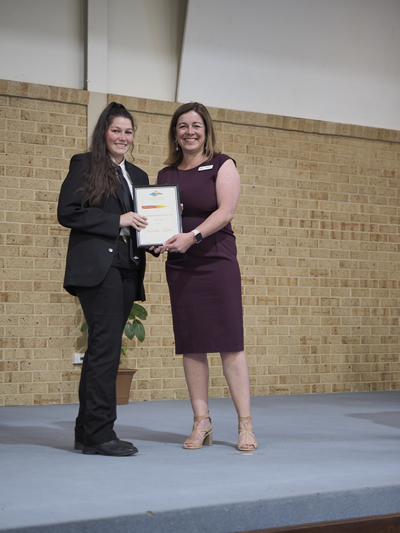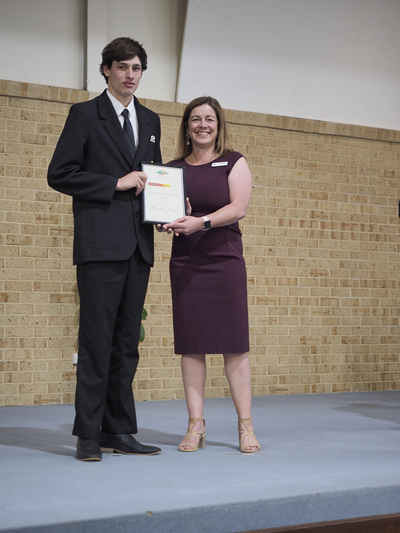What is the best way to implement research findings in your flock?
AWI Change Makers is a new initiative which aims to assist woolgrowers in answering this question. With limited face-to-face woolgrower engagement opportunities throughout much of 2020, we will be bringing this to you online.
The first instalment of AWI Change Makers is now released, the ten-part short video series is centred around sheep reproduction topics, from ram health to preparing and managing ewes for joining, pregnancy and lambing and through to weaning management.
Leading livestock consultant, Nathan Scott of Achieve Ag Solutions, Victoria, is recording the AWI Change Makers series from home and will provide you with timely, technical management tips.
Nathan is keen to see the launch of the series which focuses on outcomes growers can use on-farm now.
“It is a great new initiative from AWI to provide research outcomes to growers in a really quick and accessible format. The lack of opportunities for producers to get together and engage with industry at the moment is a real challenge. The AWI Change Makers series is designed to start conversations for producers as we bring them information and help them identify opportunities for change.”
To find the videos when released, go online to www.wool.com/awichangemakers or give AWI a follow on our social media platforms below to ensure you stay up-to-date as we demonstrate a range of practical ways growers can influence sheep reproduction with the latest research and tools informed by AWI-funded research, development and extension outcomes.
To follow AWI’s social media go to Facebook @AustralianWoolInnovation, Twitter @woolinnovation and Instagram @beyondthebale.
Reproduced from feedback@wool.com, Wednesday 19th August, 2020.
Using residual funds transferred from the Sheep CRC, the Australian Wool Education Trust is funding training in farm management apps developed by the CRC.
Lu Hogan (lhogan5@une.edu.au) is coordinating this training, which is being delivered by Laura Kemmis.
The Australian Wool Education Trust (woolwise.com) has made arrangements to facilitate access to these packages at no cost to students and teachers.
The Young Farming Champions (YFC) are identified youth ambassadors and future influencers working within the agriculture sector.
Australia is the hottest, driest continent with some of the poorest soils on the planet, yet our farmers supply safe, affordable, nutritious food for 60 million people across the globe.
To do this Australian agriculture requires talented people. The program selects emerging young people and then develops their problem-solving, their creativity, their communication and teamwork skills.
The YFC has a two year program Cultivate – Growing Young Leaders designed and run to support young people involved in a broad range of agricultural careers – from farming to consulting to marketing – to be skilled, confident and comfortable to share their stories. This program is now open for expressions of interest.
The program supports selected young people through skills training, mentoring, coaching, networking and by providing them with opportunities to tell their story.
Running since 2009, more than 100 young leaders have been trained in the program.
All the information you need to know about the program can be found by clicking here.
AWI has announced the launch of the Woolmark Learning Centre, The Woolmark Company’s digital platform for all wool learning.
This platform is an exciting development and will facilitate the education of all stakeholders in the global wool industry – from woolgrowers to textile engineers, fashion design students, trade, designers, brands and retailers.
Education is a key strategic pillar within our business and the Woolmark Learning Centre will facilitate industry access to knowledge within the global wool supply chain. I’d like to thank the industry experts who have contributed their amazing knowledge and expertise to the creation of the industry leading course content.
Below you will find full details on how to access and utilise the coursework.
The digital education platform has been developed by experts and leaders within the textile industry to enable knowledge transfer across the global supply chain.
Free to all users, the platform will focus on the following key content pillars:
 |
Fashion and Design |
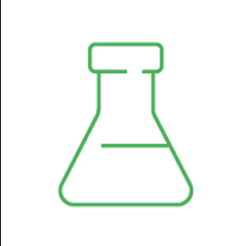 |
Science and Technology |
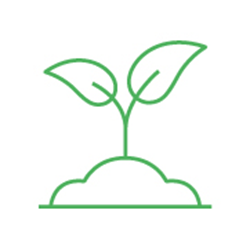 |
Sustainability |
 |
Innovation |
AWI recommends you begin with the Fundamentals of Wool course which will give you a sound foundation in understanding the wool fibre from farm to fashion. The science and technology program will also serve to extend your knowledge with postgraduate level coursework.
On completion of the course, users will be awarded a Credly badge which we encourage to be link to digital professional portfolios.
Faciliators have extended access to the platform with teaching notes and printable resources available to support face-to-face teaching.
The Woolmark Learning Centre will continually evolve. Once registered, users will be updated when new coursework is available.
For enquires about the Woolmark Learning Centre and to learn how you can integrate the platform into your institute, business or classroom, please contact the Woolmark Learning Centre project manager Penelope Kendall: penelope.kendall@wool.com
You can register here.
AWI releases Beyond the bale – December 2019 in Flip Book format.
In this issue AWI has partnered with the most popular sheep in the world, Shaun the Sheep, during the global roll-out of his new movie ‘Farmageddon’, in a series of initiatives to educate the public about the benefits of wool.
The initiatives include a unique short animation film titled ‘Super Natural Wool’ that features Shaun, plus Shaun-inspired educational materials, games and activity sheets hosted on a campaign website
View the complete December edition
Call for Abstracts
Are you an Animal Scientist working with production animals? Zoology? Wildlife? Marine Animals? Do you work in food production?
Or with social and economic issues that interface with the management of animal systems?
The Animal Production 2020 team will be closing the call for abstracts on 30th November.
Submit your abstract now at
www.animalscienceconference.com.au
The #AAAS2020 Editorial Committee welcomes abstracts from researchers working in any field of Animal Science.
- Abstracts will be assessed against the conference theme ‘The new face of Animal Science in Australia’
- The Editorial Committee will invite a limited number of authors to prepare a full six-page paper for a Special Edition of Animal Production Science.
Note:
Authors of abstracts who are not invited to submit full papers will have the option to submit one page papers through the second call for submissions for publication in Animal Production in Australia.
The Australian Association of Animal Sciences (AAAS) is the ‘new face’ of Animal Science in Australia. AAAS builds on the strengths of its predecessor, the Australian Society of Animal Sciences (ASAP), which was founded over 60 years ago to promote animal science in Australia
The Royal Agricultural Society of NSW Foundation (RASF) is calling for applications for VET Scholarships. VET Scholarships aim to support students in NSW who demonstrate a passion for rural life and commitment for any career that will ensure the future success of rural and regional NSW.
There is no limit on the types of courses that qualify and you could be studying a range of courses including Wool Classing, Food Science, Boilermaking, Farming and Nursing, through TAFE and other registered providers.
Scholarships of $6,000 for full-time study and $3,000 for part-time study are available.
Applications close Sunday 19 January 2020.
Contacts:
Cecilia Logan
Manager RAS Foundation
02 9704 1226
Emma Duffy
Manager Scholarships & Grants
02 9704 1234
Each year AWET distributes grants to selected Fashion Design students, to facilitate purchase of wool-rich fabric for their final year design projects. The students are selected by the Fashion School. University of Technology Sydney is one of the participating schools. This year’s students were Hazel Dong, Ying Huang, Tegan Kearney, Domenic Roylance. The students presented their collections at UTS on Thursday 14th November, 2019
From L to R: Domenic Roylance, Tegan Kearney, Peter Sommerville (Secretary of AWET), Ying Huang, Hazel Dong.
The Trust supports the VET sector via a number of scholarships, valued at $3,000 each, being made available per year to students attending institutions in this sector.
Applications for these scholarships are made on behalf of the student(s) by the institution at which the student is enrolled.
One of the Colleges utilising these scholarships is the West Australia College of Agriculture – Cunderdin
This year the College selected 3 students – Courtney Hall, Tameka Baker and Hayden Fiegert. Each was awarded a scholarship. The scholarships were awarded to the students by the Principal of the College, Sally Panizza, on behalf of AWET at the College’s Valedictory Ceremony on Friday 15th November 2019.
From L to R: Courtney Hall, Tameka Baker, Hayden Fiegert.
Courtney Hall and Sally Panizza.
Tameka Baker and Sally Panizza.
Hayden Fiegert and Sally Panizza.
Vision
Rural educational excellence through innovation, passion and collaboration.
Mission
- Foster a safe and healthy residential and learning environment in which the whole College promotes the DOE values of Learning, Excellence, Equity, Care, Integrity and Respect.
- Enable all students to develop the knowledge, skills and confidence to achieve their individual potential and contribute to society.
- Provide opportunities for students to develop knowledge, skills and values within the context of rural industries.
- Ensure all students achieve nationally recognised vocational qualifications and Secondary Graduation (WA Certificate of Education).
When the Wool Technology journal was first published in 1954 by the University of New South Wales it was a unique vehicle for communicating technical information to sheep and wool industry participants. The journal also provided an advertising vehicle for Merino studbreeders and industry service companies in its earlier years.
There have only been three editors during its life. Professors Pat McMahon and Euan Roberts edited the journal from 1954 until 1976. Professor Roberts remained editor until 1992 when Prof. Cottle became editor. The journal was published from UNSW, WRONZ and then UNE before it developed into the Internatonal Journal for Sheep and Wool Science.
Many journal papers were generated from the annual Wool Schools held at the School of Wool and Pastoral Sciences at UNSW. School staff and graduates have been responsible for much of the research in the sheep and wool industry with many School graduates taking up research and extension positions in CSIRO, State Departments, Universities etc.
When the journal(s) ceased publication in 2010 the then Editor, Professor David Cottle created an on-line archive using Open Journal Systems (OJS) as a platform. Subsequent to his retirement the management of this archive was transferred to the Australian Wool Education Trust.
The Trust has overseen an updating of the OJS’s software and relocated the archive to an OJS server to ensure its longevity going forward.
Consistent with its approach to supporting wool and sheep education the Trust has made access to the archive open source to registered users i.e. available at no fee.
To access the archive use this link Sheep and Wool Journal
OJS is a publishing system providing a submission, review, editing and publishing process that meets the normal requirements for science based publications. However, at this point submissions for publication are not being accepted.
